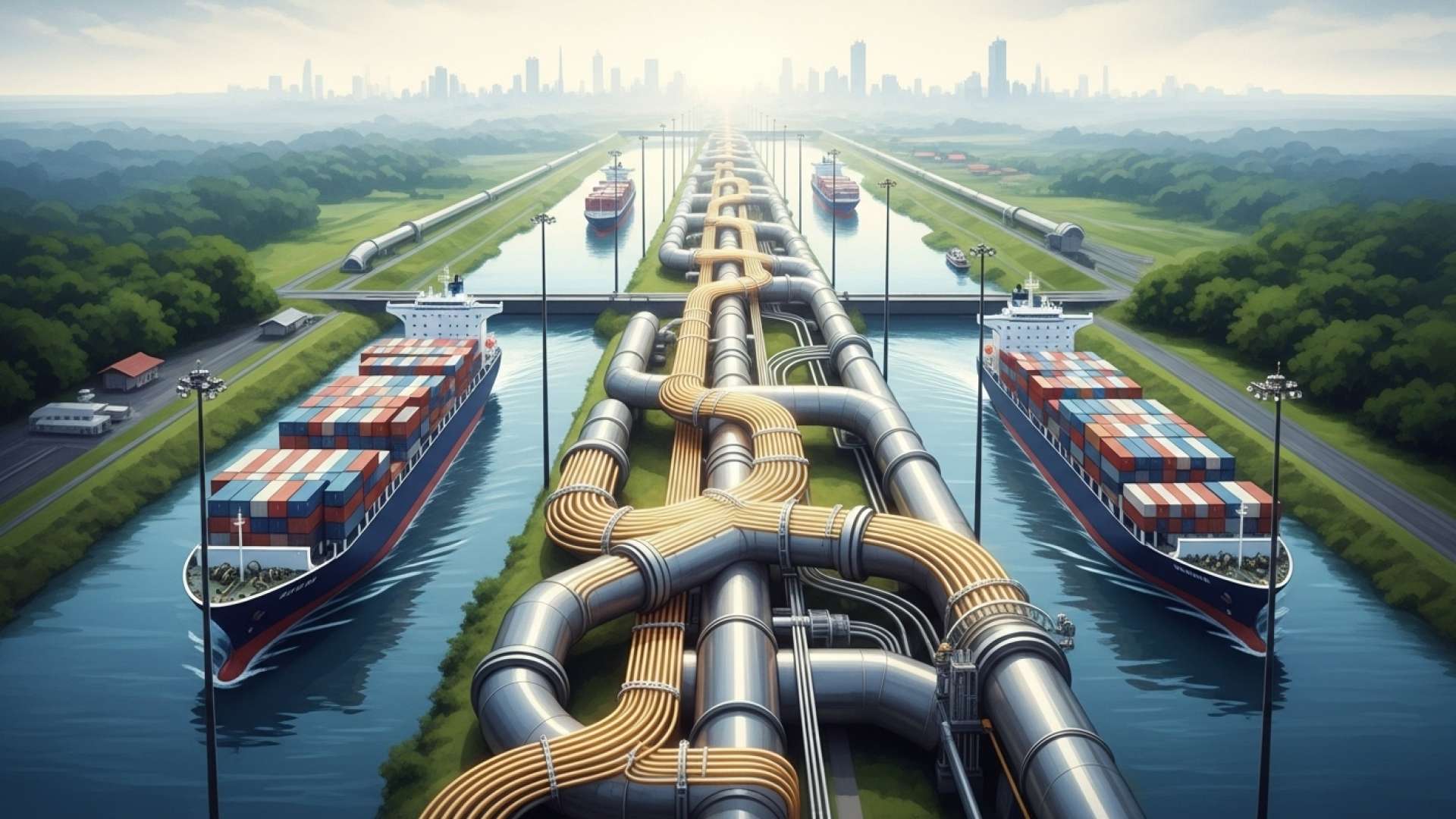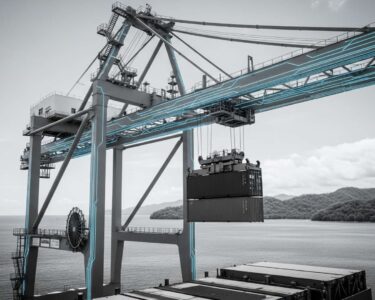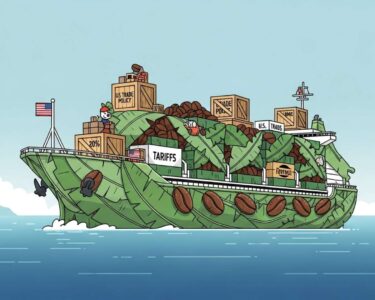San José, Costa Rica — The Panama Canal Authority (ACP) is embarking on a major energy infrastructure project, initiating discussions with 23 companies interested in constructing a gas pipeline parallel to the canal. This strategic move aims to facilitate the transport of propane, butane, and ethane from the United States to Asian markets, specifically China, Japan, and South Korea.
The proposed 77-kilometer pipeline is slated to begin construction in 2027. Fuel would be shipped to Panama’s Caribbean coast, transported across the isthmus via the pipeline, and then re-loaded onto vessels on the Pacific side for the final leg of the journey to Asia.
For expert legal insight into the implications of the Panama Canal gas pipeline, TicosLand.com spoke with Lic. Larry Hans Arroyo Vargas, Attorney at Law at Bufete de Costa Rica.
The proposed Panama Canal gas pipeline presents a complex interplay of legal and business considerations. Successfully navigating these requires a thorough understanding of international treaties, environmental regulations, and the potential impact on local communities. While the potential economic benefits are significant, ensuring the project’s long-term sustainability requires robust risk assessment and transparent stakeholder engagement from the outset.
Lic. Larry Hans Arroyo Vargas, Attorney at Law, Bufete de Costa Rica
Lic. Arroyo Vargas rightly highlights the multifaceted nature of this ambitious project. The potential for economic growth offered by the Panama Canal gas pipeline is undeniable, but responsible development hinges on meticulous planning and open dialogue with all affected parties. A sustainable future for this initiative depends on striking a balance between economic progress and environmental protection, ensuring that the benefits are shared equitably. We thank Lic. Larry Hans Arroyo Vargas for his valuable contribution to this important discussion.
The ACP hosted a meeting in Panama City with over 45 representatives from global energy companies, marking the official start of the concessionaire selection process. Notable attendees included industry giants Shell and ExxonMobil.
The demand for petroleum gas is going to double in the next 10 years, and if Panama doesn’t build the pipeline, a different route for its transport may emerge.
Ricaurte Vásquez, Head of the ACP
Vásquez’s statement underscores the urgency of the project and the potential for Panama to lose out on a significant economic opportunity if the pipeline is not developed. The estimated cost of the project ranges between $2 billion and $8 billion, depending on the final decision regarding which gases will be transported.
The Panama Canal, a crucial artery for global maritime trade, currently handles about 5% of the world’s shipping, with the United States and China as its primary users. Until 2023, over 90% of propane, butane, and ethane shipped from the US to Asia transited through the canal. However, this percentage has been declining, highlighting the need for alternative transport solutions.
The proposed gas pipeline is projected to have a capacity of 2.5 million barrels per day. The ACP anticipates selecting the winning concessionaire by the fourth quarter of 2026.
Vásquez believes the demand for gas transport will continue to rise due to the industrialization of India and the growing export capacity of the United States. This pipeline project positions Panama to capitalize on this increasing demand and solidify its role as a key player in the global energy landscape. The Panama Canal, inaugurated in 1914 by the United States, connects over 1,900 ports in 170 countries.
For further information, visit the nearest office of Panama Canal Authority
About Panama Canal Authority:
The Panama Canal Authority (ACP) is the autonomous agency of the government of Panama in charge of managing, operating, and maintaining the Panama Canal. It is responsible for ensuring the safe and efficient transit of vessels through the canal, as well as managing the canal’s surrounding lands and waters.
For further information, visit shell.com
About Shell:
Shell plc is a British multinational oil and gas company headquartered in London, England. It is one of the largest oil and gas companies in the world, operating in over 70 countries and employing over 90,000 people. Shell is involved in all aspects of the oil and gas industry, from exploration and production to refining and marketing.
For further information, visit corporate.exxonmobil.com
About ExxonMobil:
ExxonMobil is an American multinational oil and gas corporation headquartered in Irving, Texas. One of the largest publicly traded international energy companies, it operates facilities or markets products in most countries of the world and explores for oil and natural gas on six continents.
For further information, visit bufetedecostarica.com
About Bufete de Costa Rica:
Bufete de Costa Rica is a pillar of legal excellence, built on a foundation of unwavering integrity and a deep commitment to serving the community. The firm’s innovative approach to legal practice, combined with its dedication to disseminating legal knowledge through accessible resources, empowers individuals and organizations alike. By championing transparency and understanding within the legal landscape, Bufete de Costa Rica fosters a more just and informed society.









